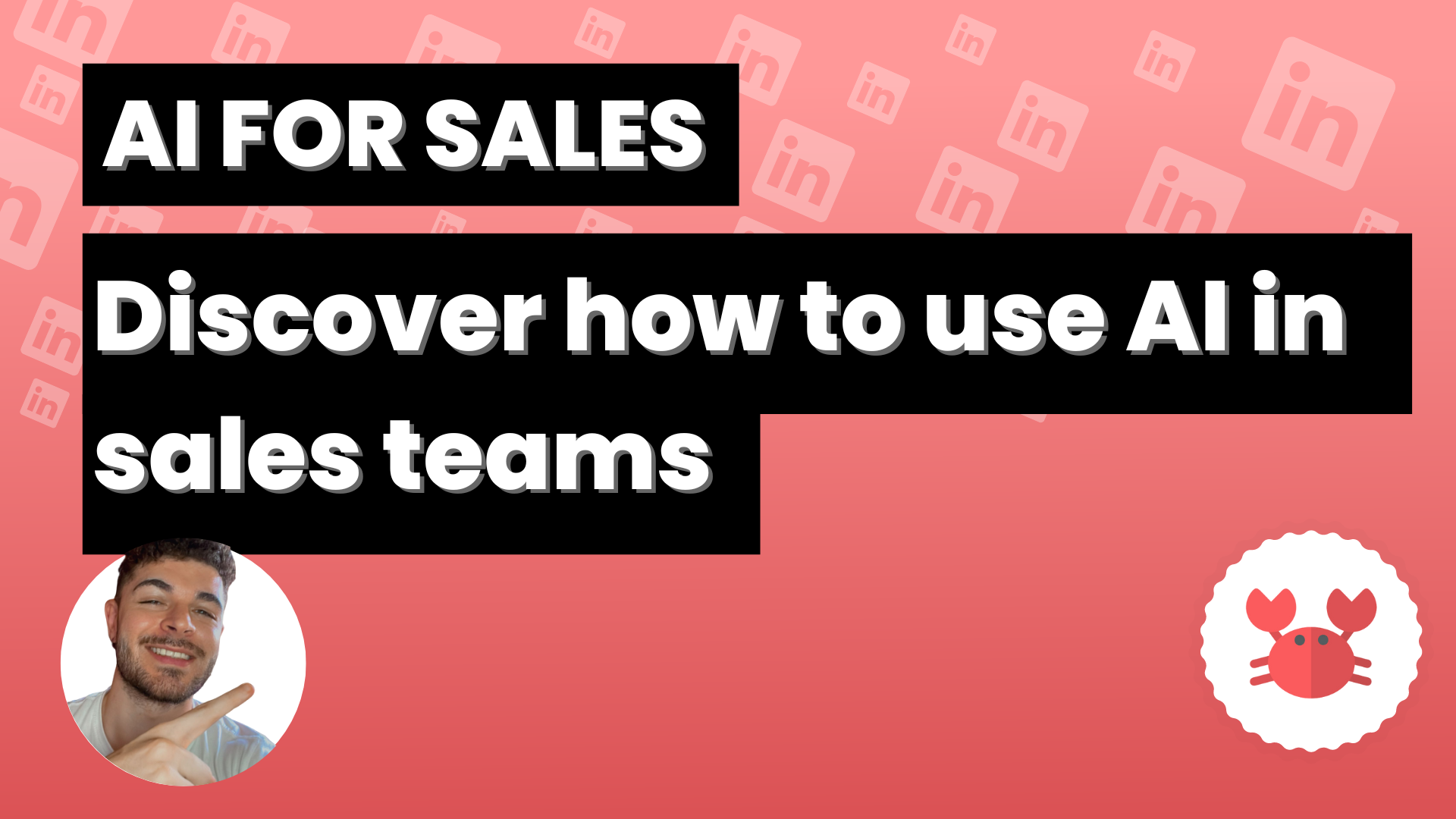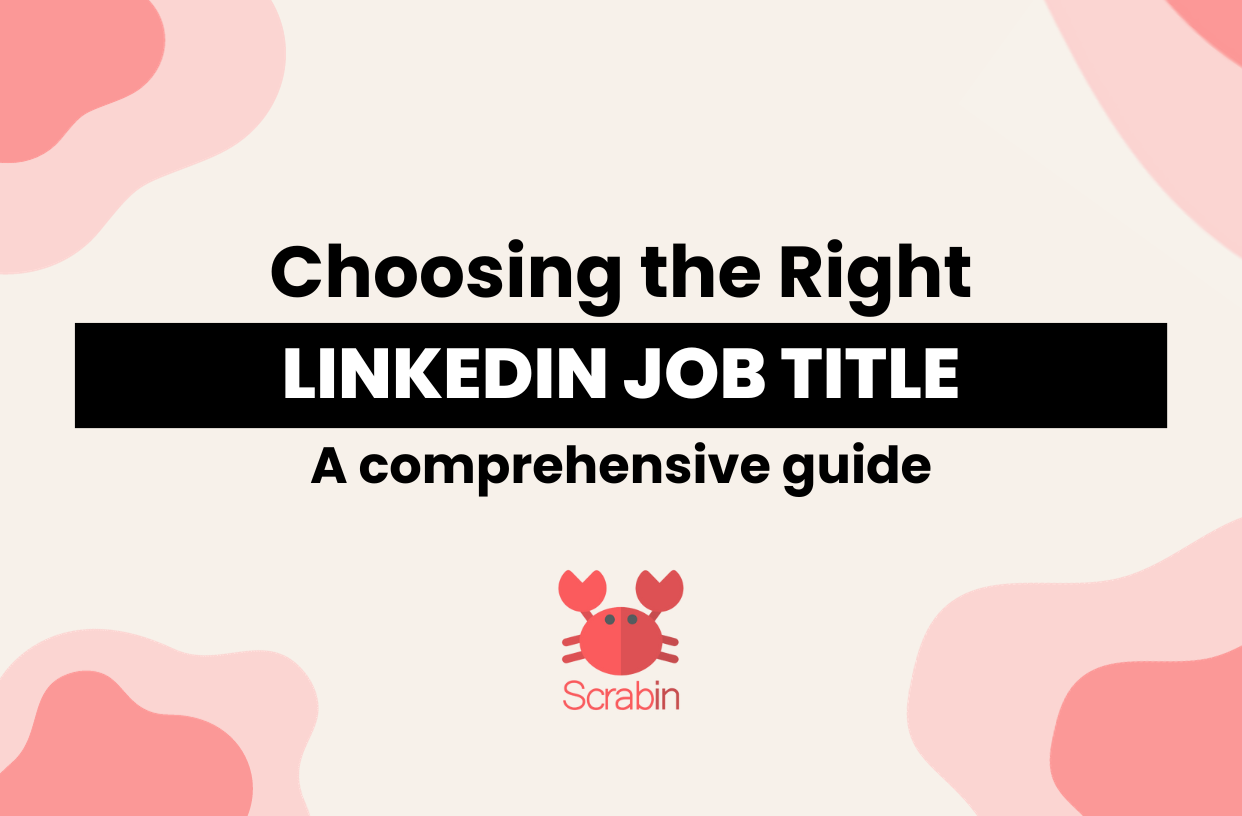Artificial intelligence (AI) is radically transforming sales.
How?
On the one hand, AI is greatly improving productivity through automation and improvement of essential repetitive tasks, such as note-taking in meetings, call analysis, lead research…
And it is also boosting sales performance with its “predictive” part: identifying the probability of closing leads, identifying new leads in the market or automatically qualifying prospects according to their intent with a lead scoring system.
Nowadays, day in and day out, new ways to sell more, and better, are being discovered thanks to AI for sales.
In this article I am going to show you some important tips. Shall we start?
- What is artificial intelligence in sales?
- Key benefits of AI for sales teams
- Practical examples of AI in the sales process
- 1. Summarize and provide action items from meetings and calls
- 2. Analyze sales calls
- 3. Sales forecast
- 4. Price optimization
- 5. Generate Emails and sales matters
- 6. Identify new market opportunities
- 7. Prioritize and qualify prospects automatically
- 8. Automatically monitor competitors with Artificial Intelligence
- The future of AI in sales strategies
- Frequently asked questions about AI in sales
- Will AI replace sales jobs?
- Main AI tools for sales available today
- Does Scrab.in use AI?
- Is the implementation of AI in sales expensive?
- What data does AI need to be effective in sales?
- Can AI improve the customer-salesperson relationship or make it more impersonal?
- Is AI useful only for large companies or also for SMEs?
- What skills does a salesperson need to work effectively with AI tools?
What is artificial intelligence in sales?
Artificial intelligence in sales is the combined use of technologies such as machine learning and language processing to optimize and improve the actions of sales teams.
For example, thanks to AI for sales, huge volumes of data can be analyzed, even in real time, automating repetitive tasks and predicting behaviors.
Key benefits of AI for sales teams
AI in sales brings benefits that translate into increased efficiency and greater ability to close deals and strengthen customer relationships, let’s take a look at them:
1. Task automation
One of the main benefits of AI is its ability to automate routine and repetitive tasks that, while important, are time-consuming.
AI can handle tasks such as data entry, appointment scheduling, email management and CRM updating.
2. Improving salesperson productivity with AI tools.
AI tools are designed to increase salespeople’s productivity.
For example, AI-powered virtual assistants can give salespeople information about prospects just before a call or meeting.
In addition, AI can prioritize daily tasks based on importance and urgency.
3. Personalization of communication
AI for sales creates personalization on a large scale, so salespeople can tailor their messages to the specific needs and behaviors of each customer.
4. Predictive analytics
Predictive analytics is one of the most interesting tools that AI for sales offers.
With historical data and behavioral patterns, AI can predict which prospects are most likely to become customers, what products or services they might be interested in, and even anticipate when they will be ready to buy.
5. Sales pipeline management
AI is also transforming sales pipeline management.
AI can identify opportunities that require immediate attention, potential bottlenecks and revenue forecasting.
Practical examples of AI in the sales process
AI is already being applied in the day-to-day work of many sales teams. Here are some practical examples of how AI is revolutionizing the sales process:
1. Summarize and provide action items from meetings and calls
AI can automatically analyze meetings and calls, summarizing key points and suggesting next steps.
2. Analyze sales calls
AI for sales can identify patterns of success and areas for improvement. AI-powered tools can evaluate tone of voice, keywords and customer behavior during the call.
3. Sales forecast
AI enables more accurate sales forecasting by analyzing large amounts of data and detecting trends that might go unnoticed.
4. Price optimization
AI is also used for price optimization, analyzing factors such as market demand, competition and customer behavior.
5. Generate Emails and sales matters
With the help of AI, it is possible to generate personalized LinkedIn emails and messages. The AI analyzes what type of messages work best with each type of customer and adjusts the content.
6. Identify new market opportunities
AI can analyze the market and detect opportunities by analyzing data, so it can detect some hidden market niches, emerging trends or underserved segments.
7. Prioritize and qualify prospects automatically
AI can automate the lead qualification process with historical data and current behavior to prioritize prospects most likely to convert.
8. Automatically monitor competitors with Artificial Intelligence
AI for sales can automatically track competitors’ activities and analyze their activities, prices and campaigns, for example.
The future of AI in sales strategies
The impact of AI on sales is only going to grow in the next few years. As technologies become more advanced, we’re going to see more AI integrations.
Long-term potential of AI in sales
The long-term potential of AI for sales is immense.
Over time, AI will become even better, able to better understand customer needs and anticipate market trends, and even interact directly with customers on a more personal level.
Challenges and ethical considerations of AI in sales
Challenges and ethical considerations will also arise. Such as data privacy, transparency in decision making and the risk of relying too much on technology.
Frequently asked questions about AI in sales
Will AI replace sales jobs?
AI is not meant to replace salespeople, not now and not ever.
AI can automate repetitive tasks and analyze large amounts of data, but the human touch in sales, such as empathy, relationship building and negotiation, is always going to be irreplaceable.
AI is a tool that can help salespeople focus on what’s important: connecting with customers and closing deals.
Main AI tools for sales available today
Some of the most popular AIs for sales are:
- HubSpot Sales Hub
- Salesforce Einstein
- Gong.io
- Outreach
- Conversica
- Clientify
These tools offer everything from predictive analytics and task automation to communication personalization and competitor tracking.
Each of them has its own strengths, so they can be used in a variety of ways.ue tienes que elegir la que mejor se adapte a las necesidades de tu equipo de ventas.
Does Scrab.in use AI?
Scrab.in uses ChatGPT, but its application is quite specific and focused on enhancing certain activities on LinkedIn:
- Automatic comments on posts: Scrab.in integrates ChatGPT to generate personalized comments automatically on LinkedIn posts.
- Profile activity automation: ChatGPT integration also allows Scrab.in to simulate activity on your LinkedIn profile, such as liking or commenting on posts.
Is the implementation of AI in sales expensive?
The cost of implementing AI in sales can vary depending on the tools and infrastructure.
Still, more and more AI tools are becoming accessible to companies of all sizes.
In addition, the ROI that AI can generate often justifies the initial cost of implementation.
What data does AI need to be effective in sales?
For AI to be effective in sales, you need access to relevant, high-quality data:
Historical sales data, customer demographic information, records of past interactions, buying patterns, and any other data that can help build predictive models and personalize communication with prospects.
The more data AI has, the more accurate and useful it will be.
Can AI improve the customer-salesperson relationship or make it more impersonal?
AI can improve the customer-salesperson relationship by enabling more precise personalization.
By analyzing data on customer preferences and behaviors, AI can help salespeople offer solutions that are more tailored to each customer’s needs.
But it is also important that salespeople use AI as a tool to enhance rather than replace human contact and empathy.
Is AI useful only for large companies or also for SMEs?
AI is not only useful for large enterprises; it is also VERY useful for SMBs. Many AIs are built to be scalable, so small businesses can use them without large investments.
In fact, for SMEs, AI can be a competitive advantage.
What skills does a salesperson need to work effectively with AI tools?
Salespeople need to be comfortable with technology and have the ability to interpret the data that AI gives. They need to be good at data analysis, adapting to new tools, and have a results-oriented mindset.
In addition, salespeople also need to have good interpersonal skills, as AI should complement, not replace, the human touch.






